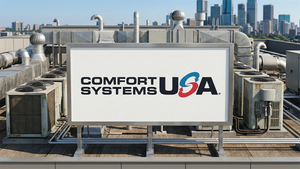Common materials for shoe outsoles include a wide range of types, each with its own unique advantages and disadvantages, as well as specific areas of application. Below are some common shoe outsole materials and their properties:
TPU (thermoplastic polyurethane)
- Advantages: good abrasion, folding and fatigue resistance; can be used as an air cushion to provide rebound and shock absorption; lace material is strong and elastic; adhesives are commonly used.
- Disadvantages: Higher cost, limiting large-scale application.
- Application areas: sole and upper lamination, decorative effect, and lace material.
Rubber sole
- Advantages: good abrasion resistance, non-slip, flexible, not easy to break, better softness.
- Disadvantages: heavier, easy to spit frost, not hard and easy to be pierced, afraid of oil immersion.
- Application areas: sports shoes, casual shoes.
Polyurethane sole (PU)
- Advantages: low density, soft texture, good elasticity, comfortable and lightweight to wear, good abrasion resistance and shock absorption performance.
- Disadvantages: strong water absorption, easy to yellow, easy to break, poor breathability.
- Application areas: high-grade leather shoes, sports shoes, travelling shoes.
EVA
- Advantages: lightweight, good elasticity, flexible, easy to process.
- Disadvantages: not wear-resistant, not oil-resistant, easy to absorb water.
- Application areas: jogging shoes, casual shoes midsole.
TPR
- Advantage: easy to shape, cheap, lightweight, comfortable, high elasticity.
- Disadvantages: heavy material, poor abrasion, poor softness and bendability, poor shock absorption.
- Application areas: casual shoes, children’s shoes.
PVC
- Advantages: cheap, oil resistance, wear resistance, good insulation properties.
- Disadvantages: poor anti-skid performance, poor texture, not cold-resistant, not resistant to folding.
- Application: cheap footwear.
TR
- Advantage: Variety of appearance, good handfeel, colourful, high technology, recyclable.
- Application areas: environmentally friendly sole materials.
The selection of these materials depends on factors such as the design requirements of the footwear, the target market, and cost-effectiveness. Manufacturers will choose suitable sole materials according to specific application needs and performance requirements. It is worth mentioning: improving the abrasion resistance of the outsole of the footwear material is also a very important point. Improving the surface abrasion resistance will greatly prolong the service life of the footwear material and improve the product competitiveness of the footwear material.
SILIKE Anti-abrasion masterbatch NM series, Wear-resistant solutions for shoe outsoles
SILIKE Anti-abrasion masterbatch NM series, as a branch of the series of silicone additives, Anti-abrasion masterbatch NM series especially focuses on enlarging its abrasion-resistance property except the general characteristics of silicone additives and greatly improves the abrasion-resisting ability of shoe sole compounds. Mainly applied to shoes such as TPR, EVA, TPU and rubber outsole, this series of additives focuses on improving the abrasion resistance of shoes, prolonging the service life of shoes, and improving comfort and practicability.
• TPR outsole, TR outsole
Recommend products: Anti-abrasion masterbatch NM-1Y, LYSI-10
• Features:
Significantly improve abrasion resistance with decreased abrasion value
Impart the processing performance and final items appearance
No influence on hardness and color
Eco-friendly
Effective for DIN, ASTM, NBS, AKRON, SATRA, GB abrasion tests
• EVA outsole, PVC outsole
Recommend products: Anti-abrasion masterbatch NM-2T
• Features:
Significantly improve abrasion resistance with decreased abrasion value
Impart the processing performance and final items appearance
No affect on hardness, Slightly improve mechanical properties
Eco-friendly
Effective for DIN, ASTM, NBS , AKRON, SATRA, GB abrasion tests
• Rubber outsole (Include NR, NBR, EPDM, CR, BR, SBR, IR, HR, CSM)
Recommend product: Anti-abrasion masterbatch NM-3C
• Features:
Significantly improve abrasion resistance with decreased abrasion value
No affect mechanical property and processing conditions
Impart the processing performance, mold release and final items appearance
• TPU outsole
Recommend product: Anti-abrasion masterbatch NM-6
• Features:
Greatly reduce the COF and abrasion loss with little addition
No affect mechanical property and processing conditions
Impart the processing performance, mold release and final items appearance
SILIKE Anti-abrasion masterbatch NM series is specially researched and developed for shoe outsole, which is widely used in EVA, PVC, TPR, TPU, TR, rubber, etc. It can significantly improve the surface abrasion resistance of shoe outsole without affecting the hardness and colour of the products, and it meets a number of test standards.
If you are engaged in the production of footwear materials and trade, you can try SILIKE Anti-abrasion masterbatch NM series to improve the competitiveness and quality of the products, and at the same time, you can also browse our Meanwhile, you can also visit our website to see more product information: www.siliketech.com, or you can contact us to get samples for testing: TEL +86-28-83625089, email: amy.wang@silike.cn
Media Contact
Company Name: Chengdu Silike Technology Co., Ltd.
Email: Send Email
Country: China
Website: https://www.siliketech.com/





